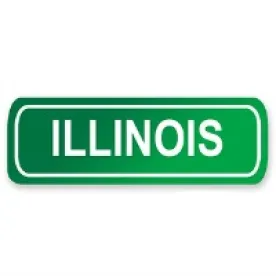In HSBC Bank USA v. Rowe, 2015 IL App (3d) 140553, the Third District appellate court recently affirmed a grant of summary judgment in favor of a lender despite some discrepancies between the copy of the note attached to the complaint and the note submitted into evidence. The Rowe decision presents some valuable practical considerations for lenders and legal practitioners who are engaging in foreclosure work.
In Rowe, following the borrowers’ failure to make mortgage payments, the bank filed a foreclosure action. The trial court subsequently granted the bank’s motion for summary judgment and entered a judgment for foreclosure and sale. The borrowers appealed on numerous grounds, however, the argument of legal import pertained to alleged discrepancies between the note attached to the complaint, and the note actually presented at summary judgment as evidence.
The copy of the note attached to the bank’s complaint was signed by one of the borrowers and the first page of the copy of the note contained the bank’s stamp, certifying that it was a “true and correct copy of the original.” The copy of the note attached to the bank’s subsequent motion to strike the borrowers’ affirmative defense, however, did not contain such certification stamp, but included an indorsement in blank below the borrower’s signature. The borrowers seized upon such discrepancies and argued that a grant of summary judgment was improper as they contended there were genuine issues of material fact as to the ownership of the note. The Appellate Court rejected the argument. The court acknowledged that “the non-identical copies [did] raise some questions—such as, at what point in time the note attached to the complaint was copied.” However, the court held that the possession of a note indorsed in blank remained payable to the bearer (and the bank produced the original note in open court twice). The court noted that under Illinois law, “it is a longstanding rule that “possession of bearer paper is prima facie evidence of title thereto … and sufficient to entitle the plaintiff to a decree of foreclosure.” The court thus concluded that any differences in the copies of the note were “immaterial to the issue o[f] ownership and standing.”
Practical Considerations
The Rowe opinion highlights once again that one of the effective ways to fight challenges to the standing in foreclosure actions is producing the original note in open court, especially when the note is indorsed in blank and payable to the bearer. However, the most valuable practical consideration is probably found in the footnote to the opinion. In the footnote, the Appellate Court stated that in 2013, Illinois Supreme Court Rule 113(b) was adopted requiring that “a copy of the note, as it currently exists, including all indorsements and allonges” must be attached to the complaint at the time of filing. The Appellate Court further noted that because the rule became effective well after the bank filed its foreclosure complaint in 2010, the bank’s failure to attach to the complaint a copy of the note bearing the bank’s indorsement in blank, therefore, did not cause the bank to violate any pleading standards. Rowe, however, could have been decided differently had the bank filed its foreclosure complaint after May 1, 2013. Legal practitioners representing lenders in foreclosure actions, accordingly, should bear in mind this new Illinois Supreme Court Rule when initiating foreclosure actions and need to make sure that a copy of the note attached to a foreclosure complaint contains all indorsements and allonges so as to avoid unnecessary legal battles, such as the decision in Rowe.




 />i
/>i

